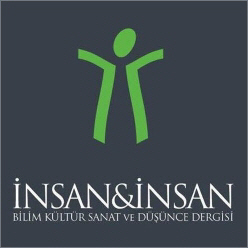Halil Emre Deniş
Abstract: Founded in 1946, the Democrat Party made promises of democratization before coming to power. Some of these promises were made to the press. Many of the media organizations at that time responded to these promises and supported the Democrat Party. With the Press Law amended after they came to power, journalists and press organizations were able to do journalism freely for a while. However, thanks to the different laws enacted in the following periods and the amendments made to the Press Law, the possibility of journalists to broadcast freely has disappeared. It is known that many journalists were imprisoned during the Democrat Party period and many media outlets were closed for various periods. Akis Magazine, which is the subject of this study, started its publication life in 1954. It followed an impartial publishing policy in the first issues. However, Akis Magazine, which followed an opposing publication policy in the following periods, started to set the agenda. This study aims to try to show how Akis Magazine adopted an oppositional publishing policy and how it set the agenda, especially in the period from the beginning of 1960 to the May 27 coup.
Keywords: Akis Magazine, 1960 Coup, Democrat Party, Press-Politics relations, Metin Toker
27 Mayıs 1960 Darbesi Sürecinde Akis Dergisi’nin Tutumu
Öz: 1946 yılında kurulan Demokrat Parti, iktidara gelmeden önce demokratikleşme vaatlerinde bulunmuştur. Bu vaatlerden bir kısmı da basına yönelik olmuştur. O dönem basın kuruluşlarının birçoğu da bu vaatlere karşılık vererek Demokrat Parti’yi desteklemiştir. İktidara geldikten sonra değiştirilen Basın Kanunu ile gazeteciler ve basın kuruluşları bir süre özgürce gazetecilik yapabilmişlerdir. Ancak ilerleyen dönemlerde çıkarılan farklı yasalar ve Basın Kanunu üzerinde yapılan değişiklikler vasıtasıyla gazetecilerin özgürce yayın yapma olanağı ortadan kalkmıştır. Demokrat Parti döneminde birçok gazetecinin hapse girdiği ve birçok basın kuruluşunun çeşitli sürelerle kapatıldığı bilinmektedir. Bu çalışmanın konusu olan Akis Dergisi de 1954 yılında yayın hayatına başlamıştır. İlk sayılarda tarafsız bir yayıncılık politikası izlemiştir. Ancak ilerleyen dönemlerde muhalif bir yayın politikası izleyen Akis Dergisi, gündem belirlemeye başlamıştır. Bu çalışmanın amacı Akis Dergisi’nin nasıl muhalif bir yayın politikasına geçtiğini ve özellikle 1960 yılının başından 27 Mayıs Darbesine kadar geçen süreçte nasıl gündem belirlediğini göstermeye çalışmaktır.
Anahtar kelimeler: Akis Dergisi, 1960 Darbesi, Demokrat Parti, Basın-Siyaset İlişkileri, Metin Toker
Halil Emre Deniş
DOI: 10.29224/insanveinsan.930501
Year 8, Issue 29, Summer 2021

Tam metin / Full text
(Turkish)

This work is licensed under a Creative Commons Attribution-NonCommercial 4.0 International License.
